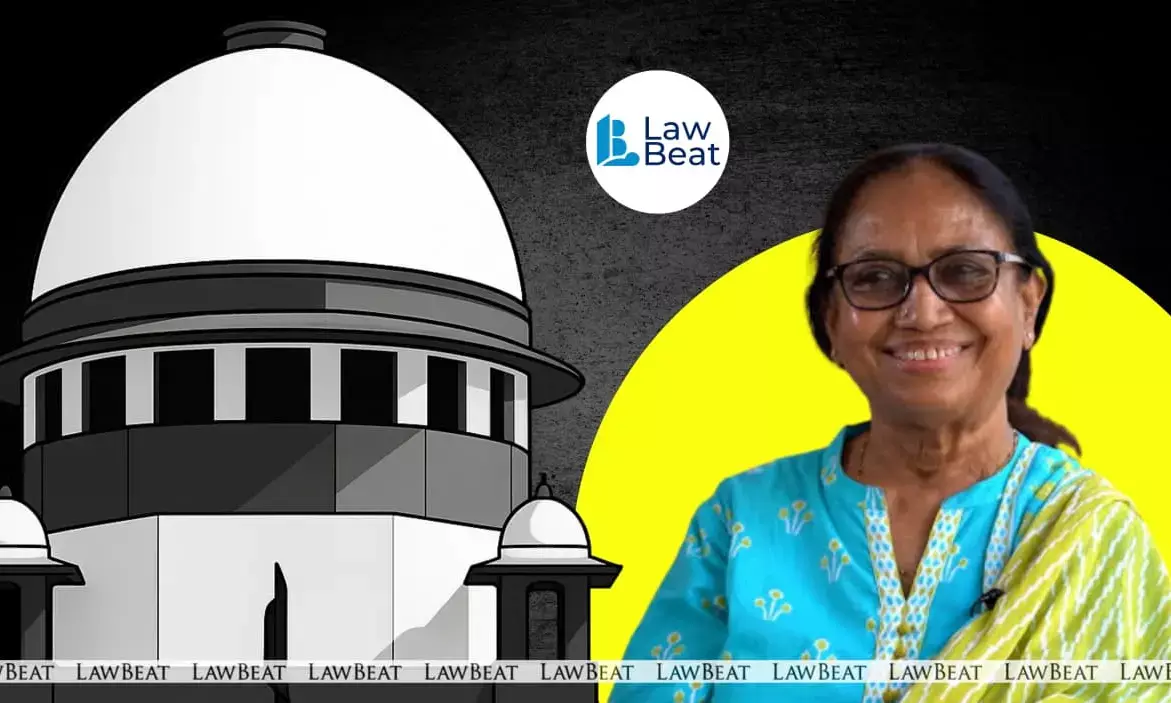Can a non-Hindu inaugurate Dasara festival? Supreme Court to decide on Karnataka's invitation to Banu Mustaq

The High Court was told that the invite was inappropriate as the inaugural function, involved active participation in Hindu religious rituals.
The Supreme Court today agreed to hear a plea against the Karnataka government' decision to invite International Booker Prize winner Banu Mushtaq to inaugurate this year’s Dasara festivities, atop the Chamundeshwari Hills, on 22 September, 2025.
A CJI BR Gavai led bench agreed to hear the case after it was mentioned today before it.
On Monday, the Karnataka High Court in the impugned judgment held that participation of a person practicing a particular faith in celebrations of festivals of other religions does not offend the religious rights of anyone. It thus refused to interfere with the government's invitation to Mustaq.
High Court's bench of Chief Justice Vibhu Bakhru and Justice CM Joshi dismissed pleas filed by one Pratap Simha challenging the state government’s invitation to the Booker Prize winner for the inauguration of the 2025 Dasara festivities in Mysore. "we are unable to accept that any legal or constitutional right of the petitioners is violated by extending the invitation to respondent No.4 to inaugurate the State sponsored Dasara festivities. Participation of a person practicing a particular faith or religion, in celebrations of festivals of other religion does not offend the rights available under Constitution of India. In our view, the extension of invitation to respondent No.4 does not fall foul of any of the values enshrined in the Constitution of India,” the bench said in its order.
High Court further observed that none of the guarantees recognized under Articles 25 and 26 of the Constitution of India were offended in this case.
"Article 25 of the Constitution of India, guarantees the right to freedom of conscience and the right to freely profess, practice and propagate religion. The petitioner's right to practice and propagate religion is not curtailed in any manner by extending invitation to respondent No.4 to inaugurate the Dasara festivities. Article 26 of the Constitution of India guarantees every religious denomination or any Section thereon to establish and maintain institutions for religious and charitable purposes; to manage its own affairs in matters of religion; to own, acquire movable and immovable property and to administer such property in accordance with law. In the present case, no right of any religious denomination or any Section thereon has been curtailed or restricted. None of the persons managing any religious denomination have come forward to claim that their right to maintain their institutions for religious and charitable purposes is being violated", the High Court had further said.
Before the High Court, the petitioners argued that it was not appropriate to invite Mushtaq to the inaugural function, as Hindu religious rituals and Hindu Agamic traditions were involved. They submitted that the inauguration ceremony would involve lighting of the ceremonial lamp and offering prayers to Goddess Shri Chamundeshwari and showering flowers and petals before the deity which can only be performed by a Hindu and no person other than one following the Hindu faith could be permitted to perform the said rituals. Court was further told that Mustaq had hurt the sentiments of people, as she has made statements, which are anti-Hindu and anti-Karnataka. Court was also provided a memo along with the translation of an extract from her speech which was claimed to be an affront to Hindus and Kannada.
Advocate General K Shashikiran Shetty opposed these contentions and said that Mushtaq is an acclaimed author invited to a state function where there could be no discrimination based on religion or caste. He also pointed out that in 2017, the late Kannada writer and poet Nisar Ahmed was invited for the function, where the petitioner Pratap Simha himself was present and shared the stage with him. The AG had also referred to the Circular dated 26.10.2016, issued by the Government of Karnataka, declaring that all temples coming under the jurisdiction of the Department of Religious Endowments of the State, as well as private temples, were required to grant free entry for all, to the Darshan of the deity, without distinction of caste, community, religion or gender.
Mentioning Date: September 18, 2025
Bench: CJI Gavai and Justice Vinod Chandran
